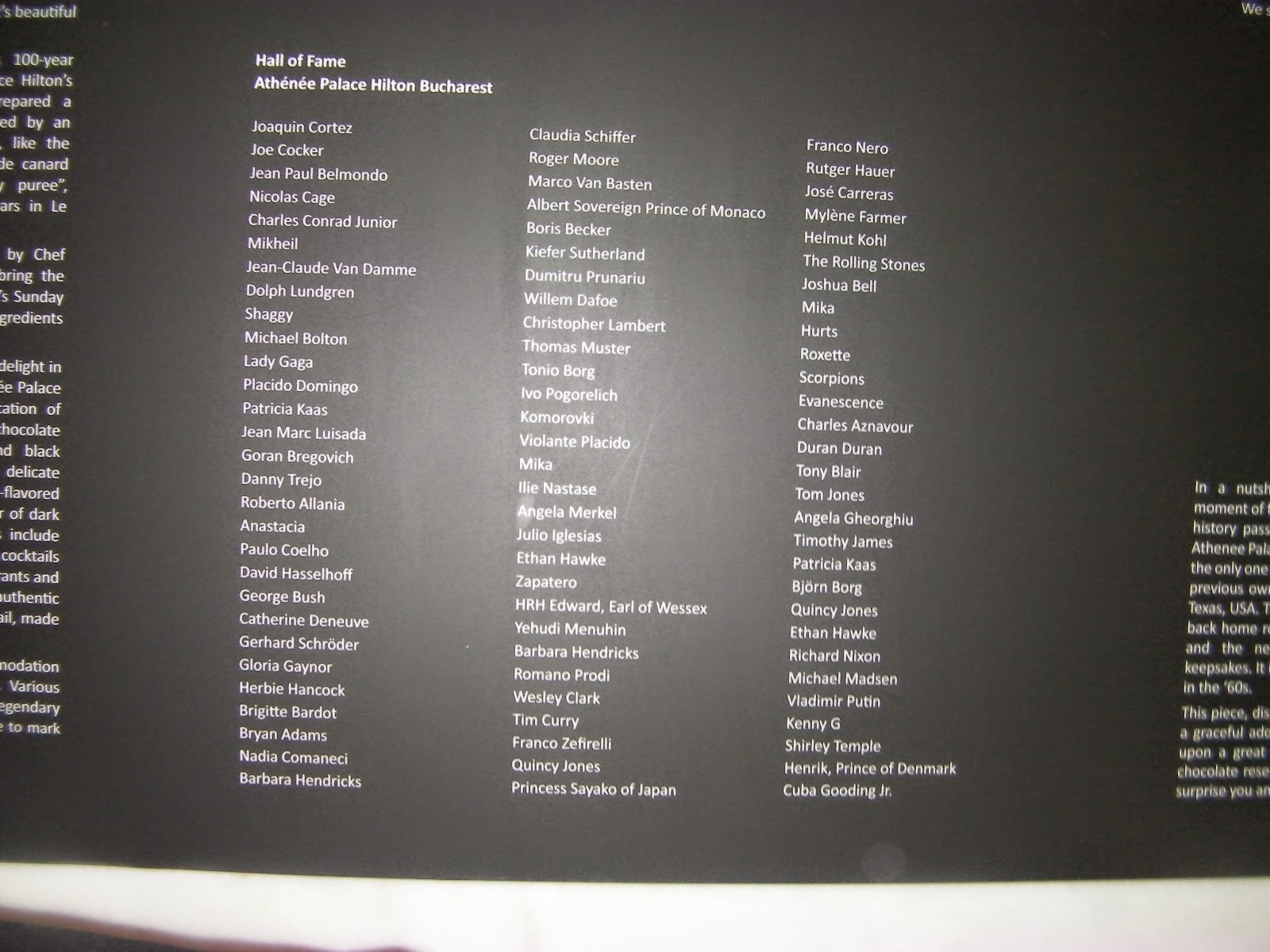New York Times foreign correspondent C. L. Sulzberger wrote in his memoir A Long Row of Candles that as World War II was approaching, he settled into the Athénée Palace "to enjoy my wait for war… This was a comfortable establishment with excellent service…a corrupt staff always seeking to change a customer's money at black-market rates, and continual competition by ladies of easy or nonexistent virtue to share the warmth of a client's bed."[6] "Countess" R. G. Waldeck wrote of the hotel in the same era, "Here was the heart of Bucharest, topographically, artistically, intellectually, politically—and, if you like, morally."[6] It was also home at the time to both British spies and the Gestapo.[1] A. L. Easterman called it the "most notorious caravanserai in all Europe. …the meeting place of the Continental spies, political conspirators, adventurers, concession hunters, and financial manipulators.







No comments:
Post a Comment